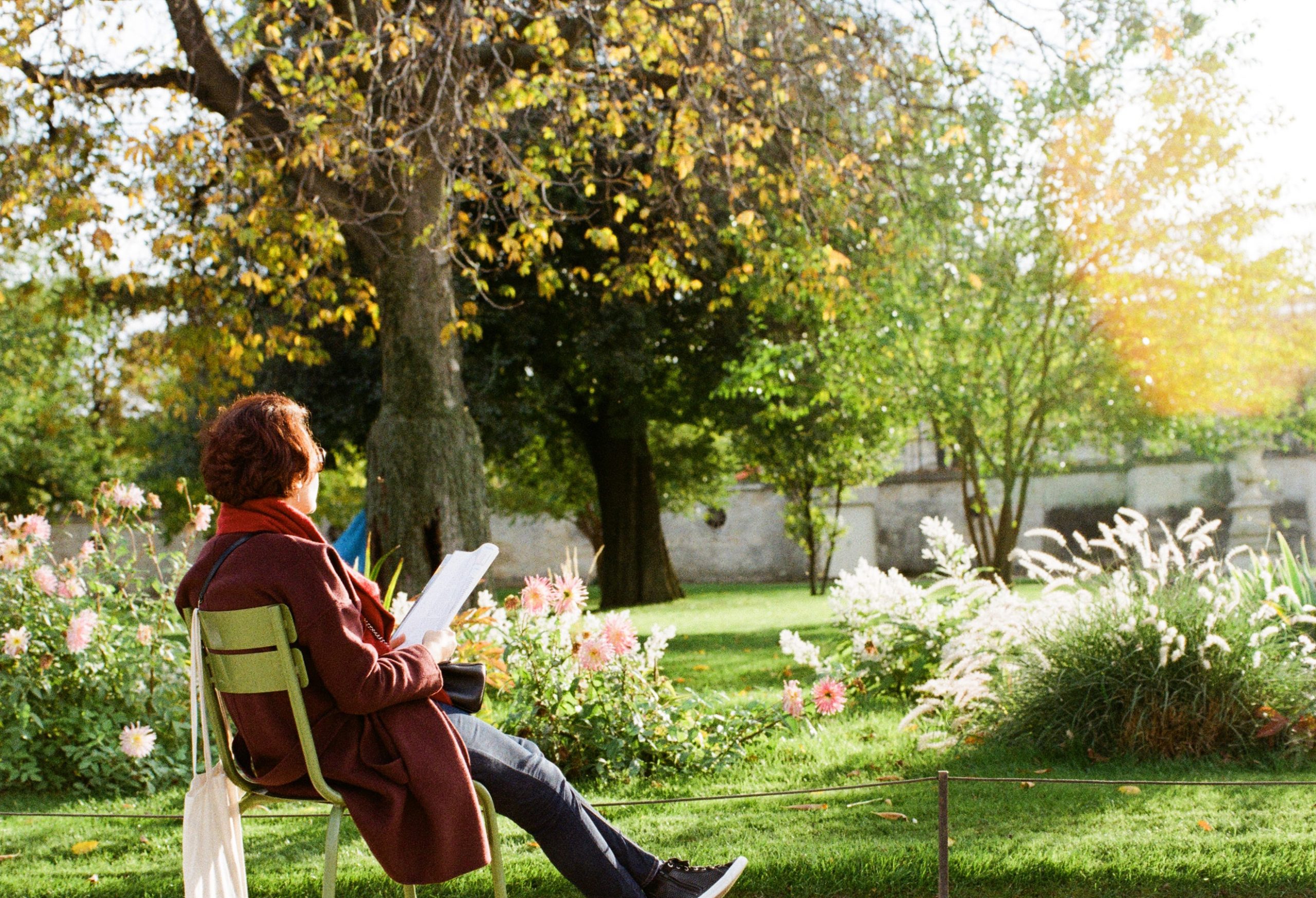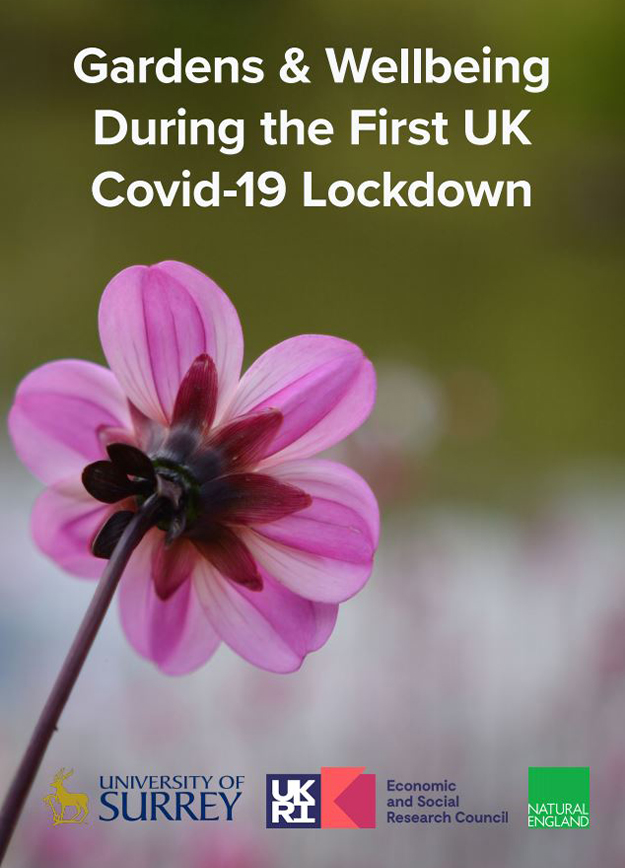New Report: Gardens & Wellbeing During the First UK Covid-19 Lockdown

One year on from the release of the National Garden Scheme’s Gardens and Coronavirus 2020 report, new research from The University of Surrey & Natural England builds on the growing evidence of the benefits of gardens during lockdown. Here, Dr Emma White, who led the report, explains what they found and looks at the similarities to the National Garden Scheme’s Findings.
Environmental psychologists at The University of Surrey have spent many years documenting the benefits of natural environments and gardens. Research has shown that gardening or spending time in gardens improves wellbeing, helps to reduce depression and anxiety, and improves life satisfaction and quality of life. But 2020 brought new challenges to mental health and wellbeing, with the pandemic leading to increases in stress, depression, anxiety, and psychological distress.
In collaboration with researchers across The University of Surrey and Natural England, our team, led by Professor Gatersleben of the Environmental Psychology Research Group, carried out a survey looking at how people used and benefitted from their gardens during the first Covid-19 lockdown, in Spring 2020.
Key findings:
- 850 people, who reflected the general population in the UK, completed the online survey
- Gardens were used frequently during lockdown, with around 60% visiting their garden at least once a day
- Gardens were used more frequently than other natural environments, such as the countryside and parks, during lockdown
- More frequent garden visits were associated with better wellbeing, including feeling more happy and cheerful, and less anxious and depressed
- The more nature in the garden, the greater the wellbeing of respondents
- Certain aspects of nature, such as natural sounds and smells, and animals, birds and insects, were particularly strongly associated with improved wellbeing
- People did lots of different activities in their gardens during lockdown, with 43% gardening, 27% spending time resting, sitting and lying down, 21% reading, 14% watching and feeding nature, 13% listening to music, radio and podcasts, and 11% enjoying the weather.
What is striking about these findings, is the number of similarities to those of the National Garden Scheme survey. Many of the 2,419 people who completed the National Garden Scheme survey reported using their gardens more during lockdown, which corresponds to the large numbers of people in our survey who used their gardens daily. People also said that access to gardens helped to relieve stress and contributed to mental wellbeing. Our findings build upon this by showing that the more people used their gardens, the better their psychological wellbeing. People also reported doing different activities in their gardens, including relaxing, garden maintenance, propagating and planting, and watching and encouraging wildlife. These activities reflect many of those described by the people filing out our survey.
Together, the two reports help to build up a strong case for the benefits of using gardens during lockdown; something which is likely to remain relevant as we recover from the pandemic.
The Report
Gardens & Wellbeing During the First UK Covid-19 Lockdown
Read and download the full report here.
Associated Content:
The National Garden Scheme report, Gardens and Coronavirus 2020 Click here
Overview of the People and Nature in a Pandemic project, being carried out by The University of Surrey and Natural England. Click here
Information about the Environmental Psychology Research Group at The University of Surrey. Click here



















